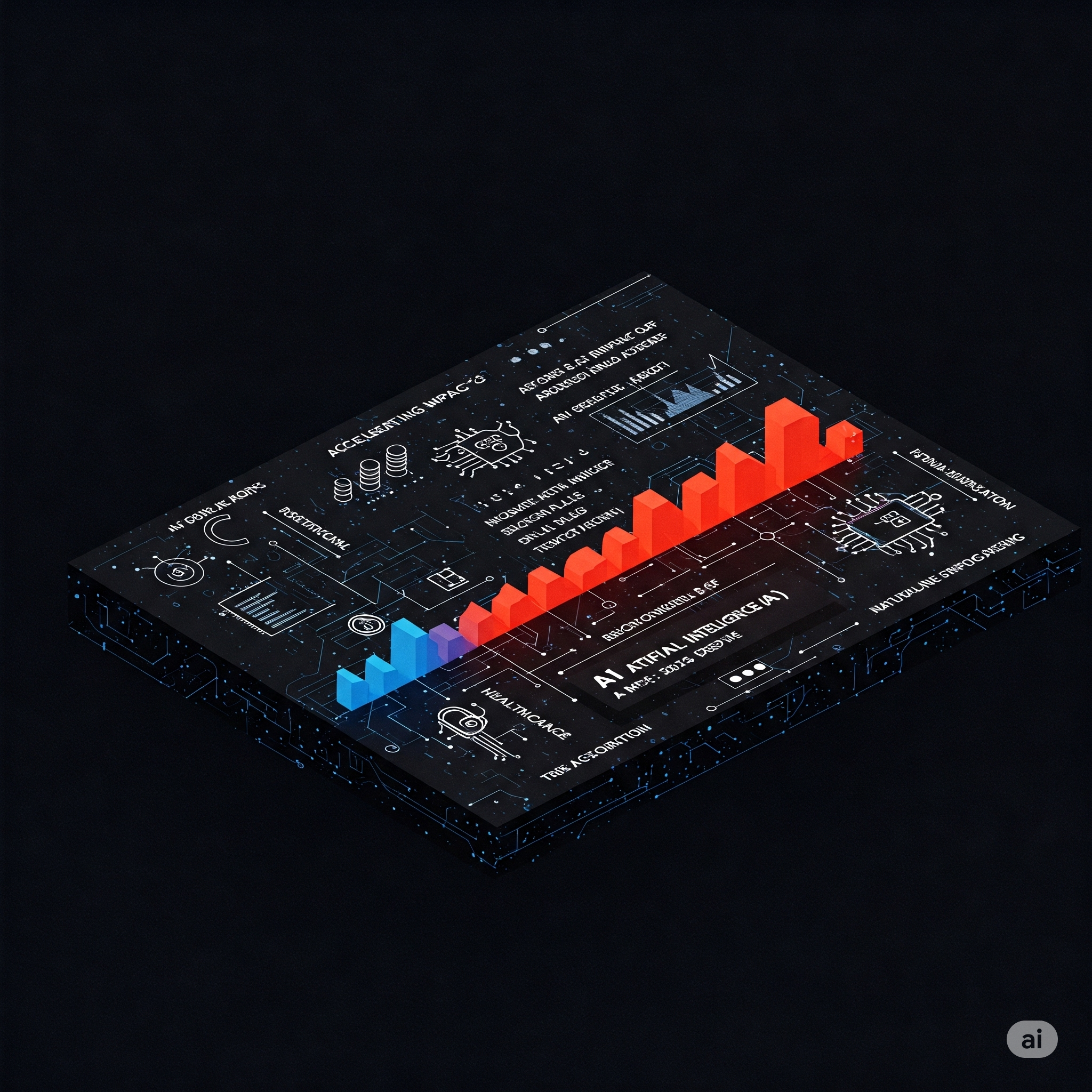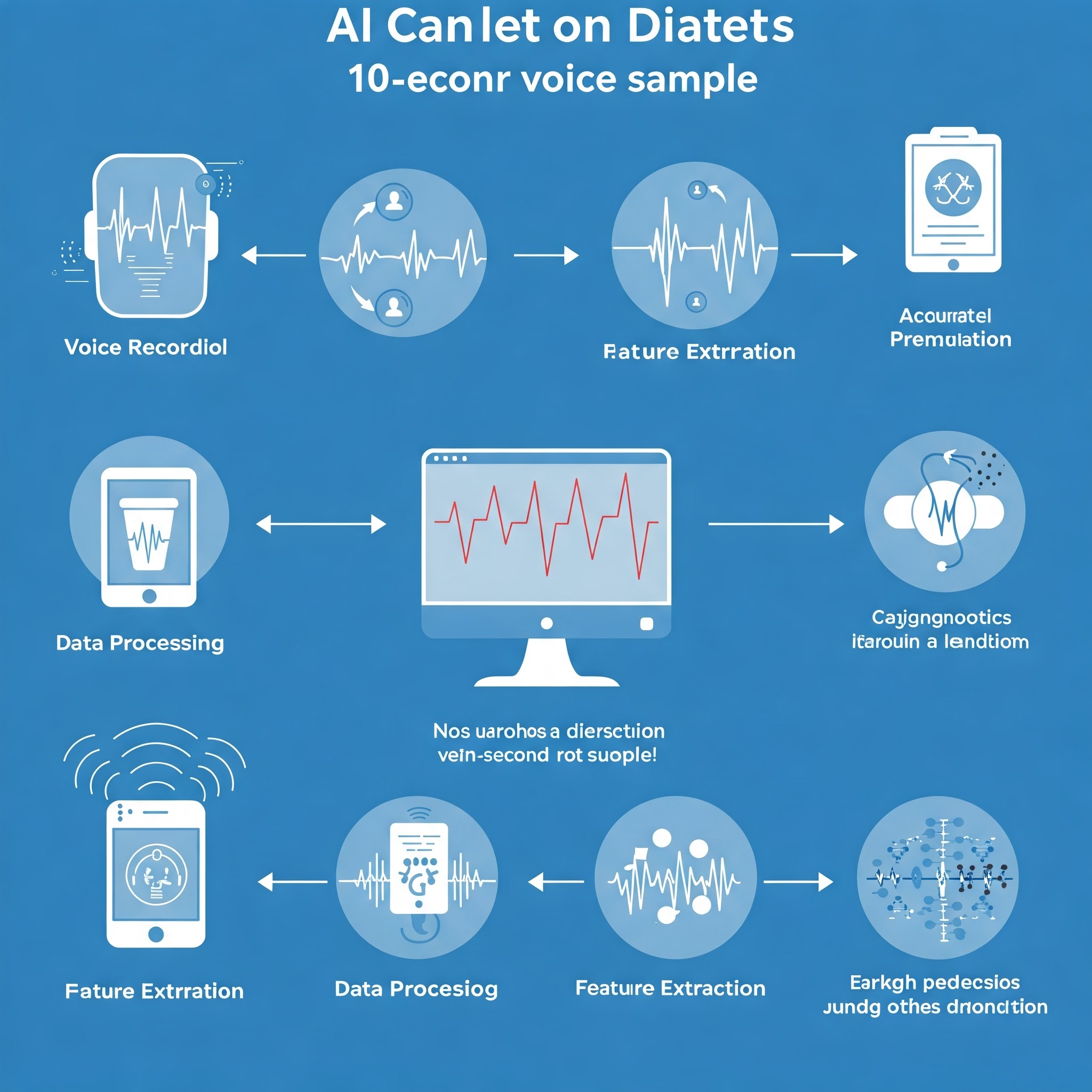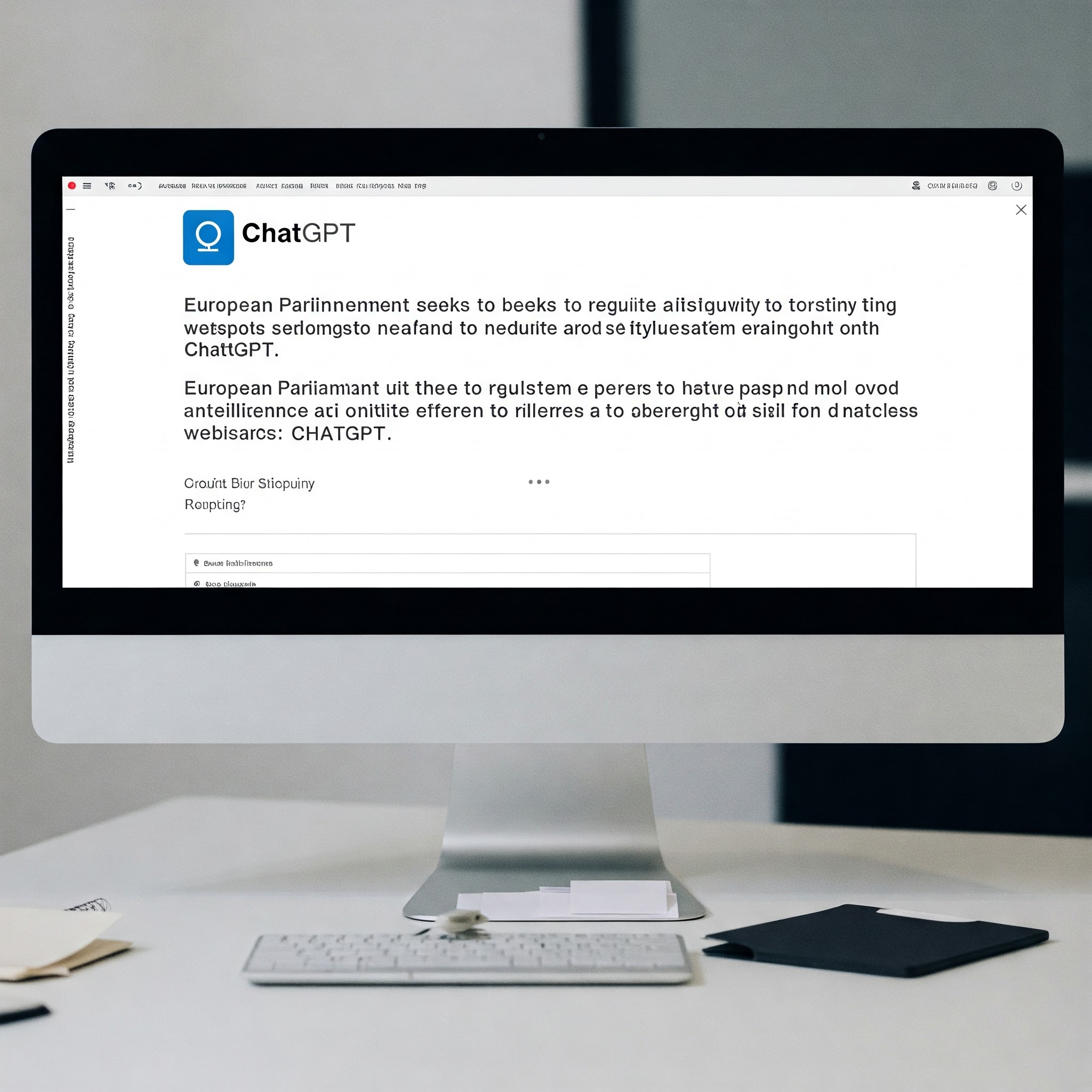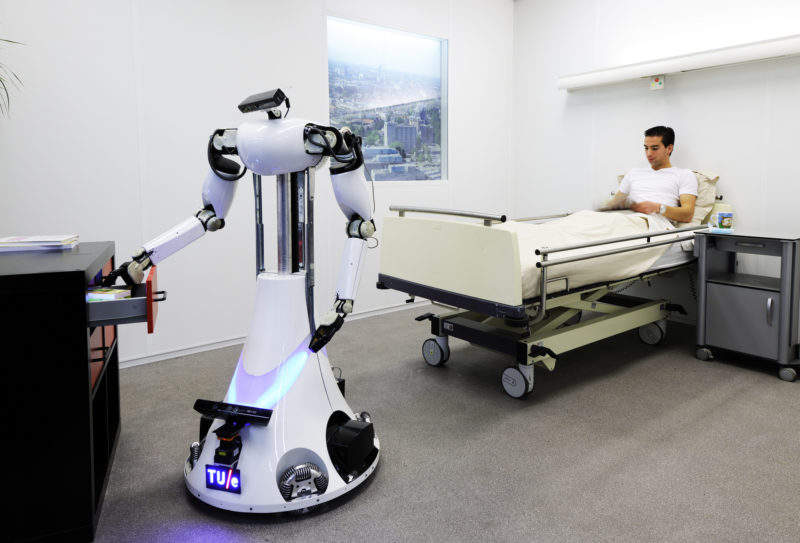The Accelerating Impact of Artificial Intelligence (AI): A Mid-2025 Deep Dive

Artificial Intelligence (AI) is no longer a futuristic concept confined to science fiction; it is a pervasive, transformative force rapidly reshaping every facet of our world. As we navigate mid-2025, the accelerating impact of Artificial Intelligence is undeniable, moving from theoretical discussions to tangible, real-world applications at an unprecedented pace. This isn’t just about automation; it’s about intelligence augmentation, new discovery paradigms, and a fundamental shift in how industries operate, how we live, and how we interact with information.
The recent explosion of generative AI, exemplified by models like ChatGPT and advanced image and video generators, has democratized access to powerful AI capabilities, making them available to individuals and businesses alike, regardless of technical expertise. This widespread adoption is fueling an acceleration that touches everything from global economies and job markets to healthcare breakthroughs and the very nature of truth in our information landscape.
AI’s Pervasive Reach: Transforming Industries at Breakneck Speed
The rapid integration of AI is catalyzing profound changes across virtually all sectors, redefining efficiency, innovation, and competitive advantage.
1. Business and Economy: A New Era of Productivity and Decision Intelligence
In the business world, AI is a strategic imperative. Companies that fail to integrate AI risk losing relevance and competitiveness. By mid-2025, over 75% of organizations are expected to have integrated AI into at least one function.
- Augmented Efficiency and Automation: AI is automating repetitive, rule-based tasks, freeing human capital for more complex, creative, and strategic endeavors. This extends from robotic process automation (RPA) in back offices to AI-driven optimization of supply chains and manufacturing processes. Businesses are witnessing an average 40% reduction in decision-making time by leveraging predictive analytics and AI-powered insights, fostering greater agility in competitive markets.
- Decision Intelligence: Beyond merely providing insights, AI is directly informing business actions. Decision intelligence systems, utilizing predictive analytics and integrated AI, are now automating and optimizing operational processes. For instance, an AI-powered supply chain system can analyze predicted sales volumes, weather data, transportation costs, and inventory levels to directly initiate optimal orders, significantly enhancing efficiency and responsiveness.
- Personalization at Scale: AI is enabling unprecedented levels of customer personalization across multiple channels. From hyper-targeted marketing campaigns to AI-powered personal shopping advisors and human-like conversational interfaces, AI is enhancing customer experiences and driving engagement.
- Reshaping the Job Market: While AI automates tasks, it also creates new roles and transforms existing ones. AI specialist roles have seen remarkable growth, with demand projected to increase by 300% from 2020 levels by 2025. Approximately 60% of all jobs are expected to see at least 30% of their tasks augmented or automated by AI. This necessitates significant reskilling of the workforce, with the half-life of professional skills shrinking to 2.5 years. Professionals who combine domain expertise with AI literacy are commanding higher salaries.
2. Healthcare: Revolutionizing Diagnostics, Treatment, and Research
AI is a game-changer in healthcare, promising to save time, reduce errors, and cut costs, with potential savings of up to $150 billion annually in the U.S. alone.
- Precision Medicine and Genomics: AI has revolutionized genomic medicine, enabling rapid advancements in personalized treatment. By analyzing vast genomic and ‘omics’ datasets, AI predicts survival outcomes, identifies complex genomic variants associated with diseases like cancer and psychiatric disorders, and supports highly customized treatment and prevention strategies.
- Enhanced Diagnostics and Predictive Analytics: AI systems are improving diagnostics by analyzing medical images, patient data, and test results to speed up diagnoses and catch conditions that might be missed by human clinicians. Predictive models assess risks for various conditions like Alzheimer’s and diabetes, enabling earlier, preventive care.
- Automated Medical Assistance: Agentic AI is emerging in healthcare, with AI-powered enterprise agents taking on increasingly complex processes such as decision support, drug discovery, medical image analysis, and patient data extraction. This “skilled medical assistant” operates 24/7, continuously learning and supporting healthcare professionals.
- Administrative Efficiency: AI automates routine administrative tasks like patient intake, data entry, and billing, significantly reducing documentation time for providers (e.g., saving 66 minutes per provider daily at some hospitals).
3. Media and Entertainment: The New Frontier of Content Creation and Consumption
The media industry is undergoing a seismic shift as AI redefines how content is created, distributed, and consumed.
- Generative Content Explosion: Generative AI is democratizing content creation by drastically reducing costs and production timelines. Tools for AI social media copywriting, image generation (Canva), video content creation (InVideo, Synthesia), and realistic voiceovers (Murf) are now widely accessible. This enables small businesses and independent creators to produce sophisticated content that was once the exclusive domain of large studios.
- Virtual Production & Deepfakes: Studios are increasingly leveraging virtual production and generative AI for cheaper and faster content creation. The ability to localize audio content into over 120 languages with AI-powered dubbing and translation is transforming global media distribution. However, this also intensifies concerns about AI-generated deepfakes and the spread of misinformation, challenging the authenticity of digital content.
- Disruption of Traditional Media: Traditional news outlets face declining public confidence and significant drops in referral traffic from social media and search engines, where AI-generated summaries are becoming prevalent. This pushes traditional media to adapt with new monetization strategies and a renewed focus on editorial credibility and investigative journalism to combat misinformation.
- New Consumption Models: The rise of streaming, podcasts, and individual content creators continues, with AI playing a role in content recommendations and personalized user experiences. Advertising models are evolving, with a surge in advertising-supported video and direct-to-consumer (DTC) platforms focusing on profitability.
4. Education and Research: Personalized Learning and Accelerated Discovery
AI is poised to transform learning and scientific discovery.
- Personalized Learning Pathways: AI tutors and adaptive learning platforms analyze student performance to offer personalized educational content, tailoring the learning experience to individual needs and paces.
- Automated Administration: AI streamlines administrative tasks for educators, from grading to scheduling, freeing up time for direct student engagement.
- Accelerating Scientific Discovery: In research, AI is invaluable for analyzing vast datasets, simulating complex systems, and identifying patterns that human researchers might miss. This accelerates drug discovery, materials science, and fundamental scientific breakthroughs.
5. Daily Life and Consumer Experience: Smart Living and Seamless Interactions
AI is increasingly integrated into our everyday lives, often subtly, making experiences more intuitive and efficient.
- Smart Homes and Personal Assistants: AI powers smart home devices, personal voice assistants (like improved versions of Alexa and Google Assistant), and intelligent appliances, creating more connected and responsive living environments.
- Enhanced Travel: AI optimizes travel planning, navigation, and even real-time language translation for global travelers. Emerging trends like “noctourism” (e.g., aurora viewing enhanced by predictive AI) and “calmcations” (tech-free, noise-reduced getaways) show AI influencing leisure trends.
- Autonomous Systems: While fully autonomous AI agents are still evolving, partial autonomy is common in areas like self-driving features in cars and intelligent robotics in various industries.
The Double-Edged Sword: Benefits, Challenges, and Ethical Imperatives
While the benefits of AI are immense, its rapid acceleration also brings significant challenges and necessitates careful ethical consideration.
Benefits and Opportunities:
- Unprecedented Efficiency: AI automates mundane tasks, optimizing workflows and dramatically increasing productivity across all sectors.
- Innovation Catalyst: AI drives breakthroughs in medicine, materials science, energy, and more, enabling solutions to complex global challenges.
- Enhanced Decision-Making: AI’s ability to process and analyze vast datasets provides deeper insights, leading to more informed and accurate decisions.
- Personalization: From healthcare to retail, AI allows for highly customized experiences, improving user satisfaction and outcomes.
- Accessibility: AI tools can enhance accessibility for individuals with disabilities, bridging gaps in communication and interaction.
Challenges and Risks:
- Job Displacement and Reskilling: While AI creates jobs, it also displaces others, particularly in routine or entry-level roles. Managing this transition and ensuring widespread access to reskilling opportunities is crucial to avoid social inequality.
- Ethical Dilemmas and Bias: AI systems learn from data, and if that data reflects historical biases, the AI will perpetuate and even amplify them. Concerns about fairness, discrimination (e.g., in lending, hiring, or healthcare algorithms), and accountability for AI-driven decisions are paramount. “Black box” AI models, which lack transparency in their decision-making processes, pose significant challenges in high-stakes domains.
- Misinformation and Deepfakes: The ease with which AI can generate realistic fake images, videos, and audio (deepfakes) poses a severe threat to trust in information, making it harder to discern truth from fabrication.
- Privacy and Security: AI systems require vast amounts of data, raising significant privacy concerns. Protecting sensitive personal and corporate data from misuse or breaches is an ongoing challenge.
- Regulation and Governance: The rapid pace of AI development often outstrips regulatory frameworks. Establishing appropriate legal and ethical guidelines for AI development and deployment is a global imperative to ensure responsible use and mitigate risks.
- The Cost of Implementation: While AI tools are becoming more accessible, implementing and maintaining complex AI systems still involves significant costs, especially for smaller organizations.
Navigating the Future: Responsible AI and Human-AI Collaboration
As AI continues its exponential growth, the focus is increasingly shifting towards responsible AI development and fostering effective human-AI collaboration.
- Responsible AI Frameworks: There is a growing global consensus on the need for ethical AI frameworks that prioritize fairness, transparency, accountability, and privacy. Companies that proactively integrate ethical AI practices are better positioned to build trust with stakeholders and comply with emerging regulations.
- Explainable AI (XAI): Efforts are underway to develop “glass box” AI systems that can explain their reasoning, rather than operating as opaque “black boxes.” This transparency is critical for building trust, particularly in critical applications like healthcare and law enforcement.
- Human Oversight and Intervention: Despite advancements in AI autonomy, human oversight remains crucial. AI is best viewed as an augmenting force, enhancing human capabilities rather than replacing them entirely. The focus is on human-AI collaborative systems, where humans provide judgment and creativity, and AI handles data processing and automation.
- Investment in Skills and Education: Governments and organizations worldwide are prioritizing education reform to prepare the workforce for an AI-augmented future. This includes updating curricula, investing in reskilling programs, and fostering AI literacy across all professional domains.
- Global Collaboration: Addressing the challenges and harnessing the full potential of AI requires international cooperation on regulatory frameworks, ethical guidelines, and research initiatives. Global AI collaboration is expanding to ensure a unified approach to AI governance.
Conclusion: A Transformative Era Demanding Foresight and Stewardship
The accelerating impact of Artificial Intelligence is the defining technological trend of our time. From revolutionizing industries and boosting economic productivity to fundamentally altering healthcare, media, and our daily lives, AI’s transformative power is undeniable. Its democratization through user-friendly tools ensures its pervasive reach will only continue to grow.
However, this rapid acceleration also presents profound challenges: concerns about job displacement, the perpetuation of societal biases, the spread of misinformation through deepfakes, and the complex ethical questions surrounding AI’s autonomy and accountability.
Successfully navigating this era demands not just technological innovation, but also foresight, ethical stewardship, and proactive policy-making. By focusing on responsible AI development, fostering human-AI collaboration, and investing in continuous learning and adaptation, we can harness AI’s immense potential to create a future that is more efficient, innovative, and equitable for all. The journey is dynamic, but with thoughtful consideration and collective effort, the accelerating impact of AI can truly be a force for unprecedented progress.





